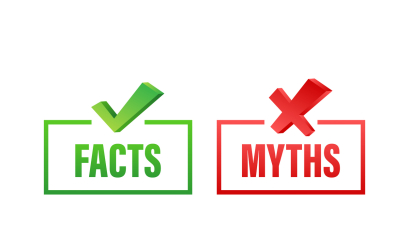
Prawda czy nieprawda? Fakty i mity dotyczące procedur naboru EPSO

Informal news about EPSO’s selection procedures abounds in many social media accounts. Some of it may be true, some of it may be false. It is important to distinguish myths from facts. This page aims to clarify that, and to help prospective candidates to clarify their doubts.
I have a lot of professional expertise and experience but to become a permanent EU official I must compete with tens of thousands of applicants. 
Indeed, several competitions, such as the so-called ‘AD5 Generalists’ competition, but also some competitions in specialised fields, such as Economy, Law and Finance, can attract tens of thousands of citizens from all over the 27 EU Member States. In the case of more specialised competitions, the number of years of professional experience required to apply may lead to a smaller number of applicants, but numbers will still be in the thousands. However, prospective candidates should not feel discouraged by this. Preparation is key to obtaining good results and on our website you will find important resources to help you prepare in advance.
Candidates that are already working for the EU Institutions stand a better chance of passing a selection procedure. 
The EU staff Regulations clearly define the legal framework for the organisation of our selection procedures. The selection procedures are open to all EU citizens, and no distinction is made between internal (i.e. people already working for the EU civil service) and external candidates, as any additional credit given to internal candidates would clearly constitute unequal treatment. Besides, EPSO’s tests are anonymous.
All candidates sit equivalent tests and the same eligibility criteria are applied to all candidates. Even though candidates within the same competition do not receive the same questions, the level of difficulty of the individual tests delivered to each candidate is identical, thereby ensuring equal treatment. The validity and reliability of multiple-choice questionnaires, for instance, has been confirmed by European Court of Justice case-law. Moreover, the Court also confirmed that these tests comply with the principle of fair and equal treatment.
Learn more about EPSO’s equal treatment policy.
EPSO uses online reasoning skills tests (verbal, numerical and abstract) to cut down candidate numbers. 
The main objective of EPSO's reasoning skills tests (verbal, numerical and abstract) is to measure key reasoning abilities for all future EU officials, not to cut down candidate numbers. Based on well-established research, these tests have the highest predictive value of future job performance (compared to purely knowledge-based tests). At the same time online tests allow EPSO to test significant numbers of candidates in an efficient manner, providing candidates with more flexibility, in line with today’s digitalised world, making the whole testing process ‘greener’ and more accessible to the vast majority of candidates, wherever they are.
I scored low marks in the verbal reasoning skills test, despite taking it in my native language. 
The verbal reasoning test is not a language test, so a low score does not imply a lack of proficiency in that language. The test simply measures verbal reasoning skills. Reasoning tests play a critically important role in assessment because the daily work of EU officials relies heavily on their ability to reason and understand complex information. The difficulty levels of multiple-choice questionnaires are decided by the Selection Board of each competition, and thus can vary from competition to competition, so one should not compare one's score in different selection procedures.
The quality of the translation of test items is better in some languages than in others. 
All test items are translated by professional translators in the EU Institutions, and are subject to rigorous quality control before being released. Quality controls on multiple-choice questionnaires’ items (language by language, question by question, etc.) are carried out regularly to identify any possible issues and correct them accordingly. Test items contested by candidates are subject to review by the Selection Board and if confirmed to be flawed, they are neutralised for all candidates who have received them and removed from the pool of test items for future candidates. Having said that, the number of items which have been neutralised until now is extremely low and varies between less than 0.09% and 0.33% in relation to the total number of multiple-choice items available in EPSO’s database.
Find some sample tests in different languages for the different profiles on the EPSO TESTS page.
Learn more about the concept of ‘item neutralisation’.
My scores in the multiple-choice questionnaire vary from one competition to another! 
This is normal. It is important to note that the difficulty levels of multiple-choice questionnaires are decided by the Selection Board of each competition, and thus can vary from one competition to another, so one should not compare one's score in different competitions. While some questions may look similar or may even reappear, with over 80,000 questions in its database, EPSO holds one of the largest item banks of its kind in the world, according to experts in the field, and score variations from one competition to another do happen.
